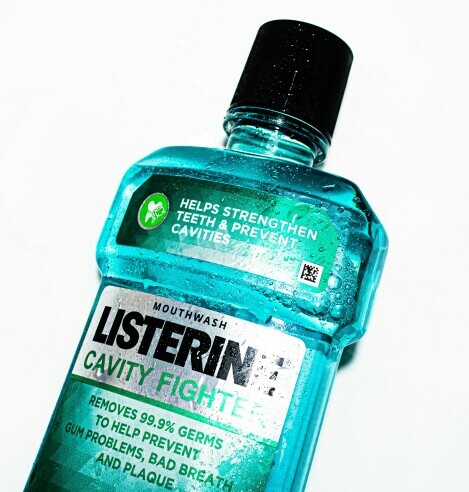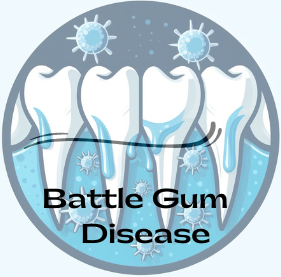I’m going to kick things off with a candid chat about gum disease—something that affects a significant number of people yet often flies under the radar. But guess what? They are preventable and manageable, especially with the help of products like mouthwash. This isn’t just about a fresh breath; it’s also about keeping your gums healthy.
You will discover how mouthwash can be a vigilant protector of your gums, but before we jump in, let’s understand the basics. Gum disease, or periodontal disease, is a sneaky culprit that can cause swollen, sore, or infected gums. It’s the kind of thing you want to nip in the bud before it escalates into something more serious—like tooth loss or even impacting your overall health.
Don’t feel overwhelmed, because you’ll find out about the use of mouthwash that will help prevent gum disease. In this article, we’ll explore the different types of mouthwashes, how they work, and why they are an essential component of your dental hygiene routine.
So buckle up as I guide you through the essentials of preventing gum disease with a swish and a gargle. We’ll talk about the role mouthwash plays in your oral health and how to use it effectively to keep those gum woes at bay. This is step one in our four-part journey towards a healthier mouth, leading perfectly into the next section, where we’ll unravel the role of mouthwash in oral hygiene.
The Role of Mouthwash in Oral Hygiene

Integrating mouthwash into your daily routine can significantly bolster your oral hygiene regimen. Mouthwash isn’t just a breath freshener; it’s a powerful ally in the fight against gum disease.
Here’s the deal: mouthwash can reach places that brushing and flossing may miss, giving your gums an extra layer of protection. Its liquid form allows it to slip between teeth and along the gumline, attacking harmful bacteria that can contribute to gum disease.
Not all mouthwashes are created equal. Antiseptic mouthwashes, for instance, are packed with ingredients like chlorhexidine or cetylpyridinium chloride, known for their bacteria-busting prowess. Fluoride mouthwashes, on the other hand, focus on strengthening enamel and preventing tooth decay—a bonus for your gums too.
However, it’s crucial to understand that mouthwash does not replace brushing and frequent flossing. Consider it an important supplement to your oral care arsenal—a finishing touch, if you may, after you’ve manually dislodged food particles and plaque.
Following instructions when using mouthwash is important since overuse or incorrect use could potentially lead to issues rather than prevent them. Remember, mouthwash is part of the solution, not the sole remedy. So, for that extra boost in your oral hygiene and to keep your smile bright and gums healthy, a regular swish of mouthwash can go a long way.
Best Practices for Using Mouthwash Effectively

There is a correct way to use mouthwash because, believe it or not, there’s a bit of a technique to it. You’ll want to make sure you’re getting the most benefit from your mouthwash, especially if you’re aiming to prevent gum disease.
First off, swish it; don’t rush it. The American Dental Association suggests swishing mouthwash for a full 30 seconds to a minute. That might seem like forever, but it’s crucial for the active ingredients to work their magic.
Secondly, timing is everything. Use mouthwash at a different time to when you brush. Why? Because if you’re using a fluoride toothpaste, you don’t want to rinse away its benefits right after brushing.
Now, this isn’t just about swishing and spitting; your overall oral care routine is key. Mouthwash should be part of a comprehensive plan that includes regular brushing with fluoride toothpaste and daily flossing.
In my opinion, choosing the right mouthwash can make a significant difference. If gum disease is a concern, opt for a therapeutic mouthwash that targets gingivitis. Always check for the American Dental Association’s (ADA) Seal of Acceptance on products.
You’re going to find out about specific ingredients and their benefits in mouthwashes, particularly for gum health, in the next section. You can always adjust your approach down the road, but starting with these practices puts you on the path to healthier gums.
Scientific Evidence and Expert Opinions on Mouthwash
I’m going to show you what science has to say about mouthwash as a tool in the fight against gum disease. You’re going to find out about the compelling research that backs up the use of mouthwash for maintaining gum health. This isn’t just about fresh breath; it’s also about keeping your gums in tip-top shape.
Dental experts often weigh in on this subject. In my opinion, considering these perspectives is crucial because they come from years of experience and deep knowledge of oral health. Experts can guide us in optimizing the use of mouthwash for our gum disease prevention strategy.
If you want to avoid the pitfalls of misinformation, it’s essential to also look at the potential risks associated with mouthwash use. Not every product is created equal, and some can cause irritation or other side effects if they’re not used as directed. Understanding these risks ensures you can always adjust your approach down the road if needed.
Finally, let’s bust some myths. Just don’t focus too much on perfection; mouthwash is a tool, not a cure-all. It works best when used in conjunction with other oral hygiene methods. I really hope that you use this information to make informed choices about your oral health regimen.
They have specific mouthwash for conditions like gingivitis and periodontal disease, which I have, if you have severe gum problems. I use a mouthwash called Parodontax, which can be found on Amazon or at stores like Walmart and Target. My dentist appointments have been much better since I’ve been using it for roughly two years. My doctor has been astounded that since then, my problem has not worsened, and his work has gotten a lot easier since he has had to perform less scraping. Listerine is what I would suggest using if you have no dental health problems but want to prevent issues down the road. It effectively eliminates microorganisms and leaves your mouth feeling clean and revitalized. Day-to-day oral care goes a long way for great and healthy gums, teeth and overall health
“Here’s a little transparency: Our website contains affiliate links. This means if you click and make a purchase, we may receive a small commission. Don’t worry, there’s no extra cost to you. It’s a simple way you can support our mission to bring you quality content.”
